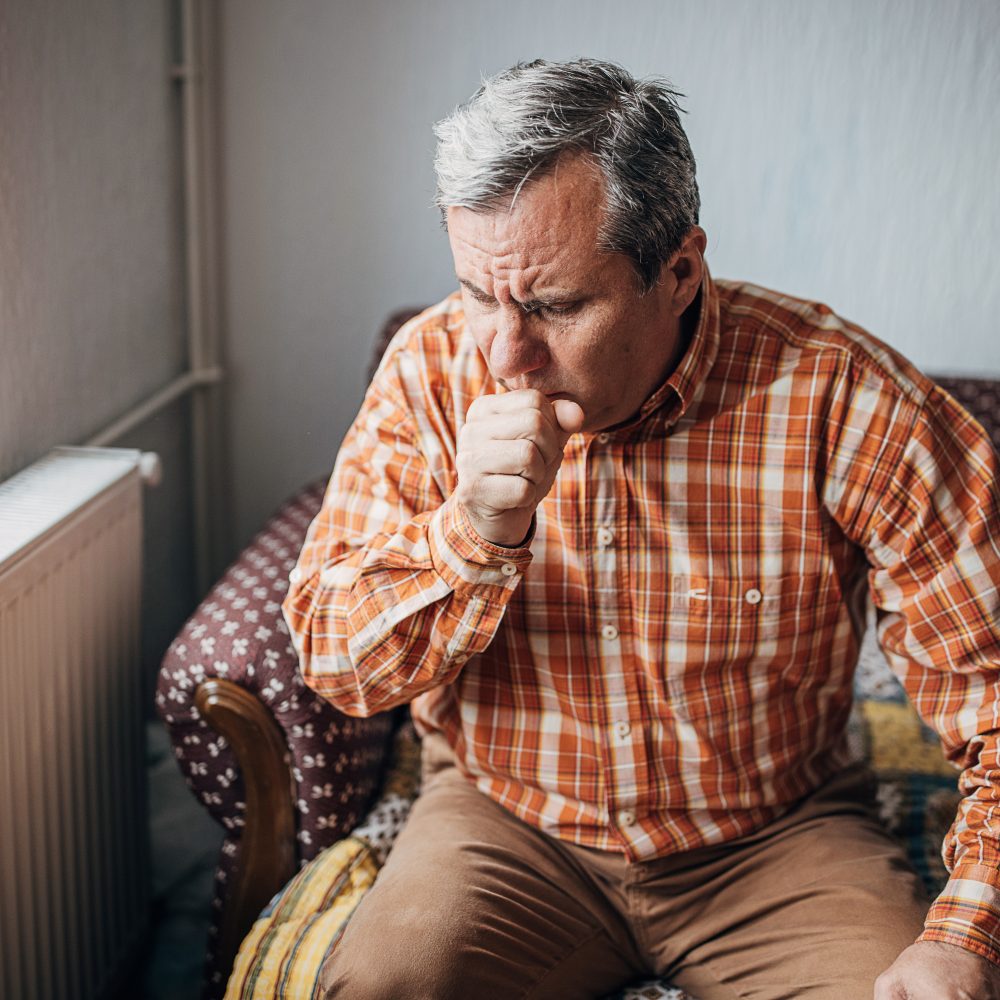Know the Warning Signs of COPD

If you have been coughing and wheezing a lot lately, you may be wondering whether you have chronic obstructive pulmonary disease (COPD). Symptoms of COPD may be similar to other conditions affecting your lungs and breathing, such as asthma and bronchitis. But there are differences between these conditions. Knowing what to look for and when to seek medical attention can help you better manage this condition. “COPD is essentially broken down into things like emphysema, where the problem occurs because of the destruction of lung tissue,” pulmonologist Howard Waksman, MD, says, “or chronic bronchitis, where the condition is largely limited to the airways. The net effect is the same, though, in terms of abnormal tests and symptoms.”
COPD Symptoms
The most common symptom of COPD is a cough that doesn’t go away. The cough may be accompanied by wheezing, chest tightness and mucus production and may cause you to feel short of breath. Below is a list of COPD symptoms, but keep in mind that symptoms may not appear to be very bothersome until COPD has progressed to the point where significant lung damage has occurred.
- A chronic cough
- Shortness of breath
- Mucus/phlegm/sputum production
- Wheezing
- Chest tightness
- Frequent respiratory infections
- Fatigue/lack of energy
- Weight loss with no known cause
- Swelling in feet, ankles or legs
Symptoms may occasionally become worse for periods of time (called exacerbations) before they are under control again. The most common cause of exacerbation is due to infection in the lungs or airways.
Who is most at risk for COPD?
Anyone can develop COPD, but your risk increases if:
- You are a current or former smoker
- You are exposed to secondhand smoke, air pollution, dust, fumes or chemicals on a regular basis, such as at work
The most common cause of COPD is long-term exposure to smoke, irritating gases or particulate matter. People who experience chronic bronchitis or emphysema are more likely to develop COPD. People over age 40 are also more likely to develop the condition. But if you experience symptoms of COPD, don’t assume it’s just due to age. See a doctor for further evaluation. A doctor can perform a simple breathing test, called spirometry. This measures the amount of air you blow out and how fast you blow it out. It can determine whether you have COPD.
Does COPD get worse over time?
COPD is a progressive disease, meaning it usually gets worse over time. Although there is no cure for the disease, the condition is treatable and treatment is aimed at managing symptoms. This can improve your quality of life and makes it less likely you will experience complications from related health issues.
The sooner COPD is diagnosed, the sooner treatment can begin. This can prevent further damage to the lungs or loss of lung function.
Understanding Chronic Obstructive Pulmonary Disease
A Deborah Health Report Podcast with Howard Waksman, MD
Copyright 2022-2023 © Baldwin Publishing, Inc..
Health eCooks™ is a designated trademark of Baldwin Publishing, Inc. Any duplication or distribution of the information contained herein without the express approval of Baldwin Publishing, Inc. is strictly prohibited.